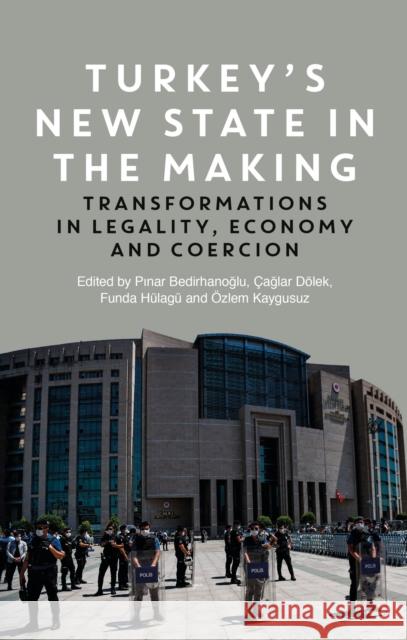Turkey's New State in the Making: Transformations in Legality, Economy and Coercion » książka
topmenu
Turkey's New State in the Making: Transformations in Legality, Economy and Coercion
ISBN-13: 9781786998712 / Angielski / Miękka / 2022 / 320 str.
Turkey's New State in the Making: Transformations in Legality, Economy and Coercion
ISBN-13: 9781786998712 / Angielski / Miękka / 2022 / 320 str.
cena 146,88
(netto: 139,89 VAT: 5%)
Najniższa cena z 30 dni: 145,09
(netto: 139,89 VAT: 5%)
Najniższa cena z 30 dni: 145,09
Termin realizacji zamówienia:
ok. 30 dni roboczych.
ok. 30 dni roboczych.
Darmowa dostawa!
Kategorie BISAC:
Wydawca:
Zed Books
Język:
Angielski
ISBN-13:
9781786998712
Rok wydania:
2022
Ilość stron:
320
Waga:
0.45 kg
Wymiary:
23.39 x 15.6 x 1.7
Oprawa:
Miękka
Wolumenów:
01











